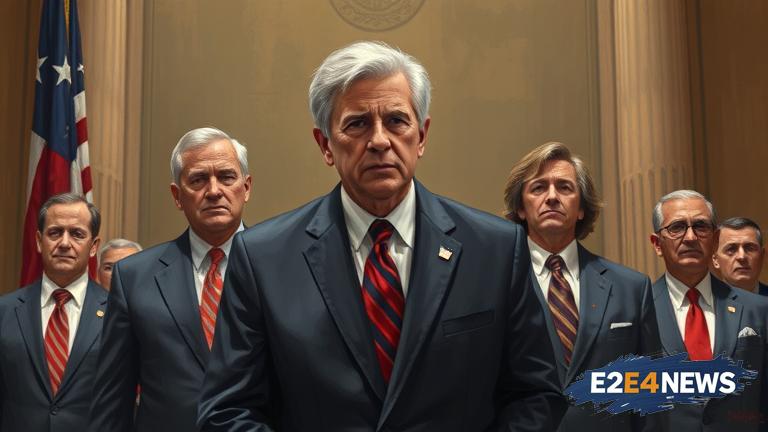The Texas Governor’s recent threat to remove lawmakers who block the voting bill has sparked controversy and raised concerns about the limits of executive power. The move is seen as unprecedented and is likely to face significant legal hurdles. The voting bill, which aims to restrict voting rights, has been a contentious issue in the state, with Democrats and Republicans sharply divided on the matter. The Governor’s threat has been condemned by Democratic lawmakers, who argue that it is an attempt to intimidate and silence them. Republican lawmakers, on the other hand, have largely supported the Governor’s move, arguing that it is necessary to ensure the passage of the voting bill. The controversy has also drawn attention from the national stage, with the Trump administration weighing in on the issue. The administration has expressed support for the Governor’s efforts to restrict voting rights, citing concerns about voter fraud. However, Democrats and voting rights advocates have argued that the restrictions are unnecessary and will disproportionately affect minority voters. The legal hurdles facing the Governor’s threat are significant, with many experts arguing that it is unconstitutional. The Texas Constitution grants lawmakers the power to make laws, and the Governor’s attempt to remove them could be seen as an overreach of executive power. Additionally, the threat may also violate federal law, which protects the rights of lawmakers to participate in the legislative process. The controversy has also raised concerns about the impact on democracy and the rule of law. Many have argued that the Governor’s threat undermines the principles of democracy and the separation of powers. The issue is likely to end up in court, with lawmakers and voting rights advocates challenging the Governor’s move. The outcome of the legal battle is uncertain, but it is clear that the controversy will have significant implications for the state of Texas and the country as a whole. The Governor’s threat has also sparked a national debate about voting rights and the role of the executive branch in shaping the legislative process. The issue has highlighted the deep divisions within the country, with many arguing that the restrictions are necessary to prevent voter fraud, while others see them as an attempt to suppress minority votes. The controversy has also raised questions about the role of the Trump administration in shaping state-level policy, with many arguing that the administration’s support for the Governor’s efforts is an attempt to undermine democracy. The issue is likely to continue to be a major point of contention in the coming months, with lawmakers, voting rights advocates, and the Governor locked in a bitter battle over the future of voting rights in Texas. The state’s Democratic lawmakers have vowed to fight the Governor’s threat, arguing that it is an attempt to silence them and undermine the democratic process. The Republican lawmakers, on the other hand, have expressed support for the Governor’s move, arguing that it is necessary to ensure the passage of the voting bill. The controversy has also sparked a national conversation about the importance of protecting voting rights and ensuring that all citizens have access to the ballot. Many have argued that the restrictions are a step backwards for democracy and will have a disproportionate impact on minority voters. The issue has highlighted the need for comprehensive voting reform and the importance of protecting the rights of all citizens to participate in the democratic process. The Governor’s threat has also raised concerns about the potential for voter suppression and the impact on marginalized communities. The controversy is likely to continue to be a major point of contention in the coming months, with lawmakers, voting rights advocates, and the Governor locked in a bitter battle over the future of voting rights in Texas.





